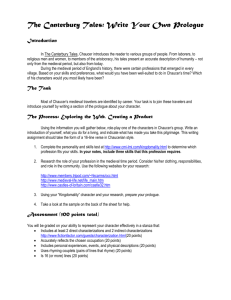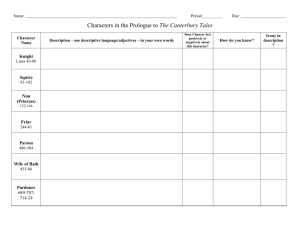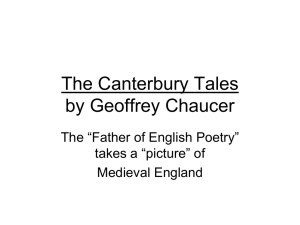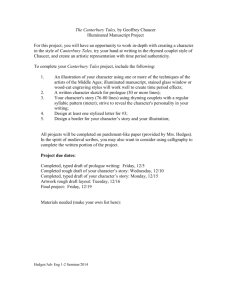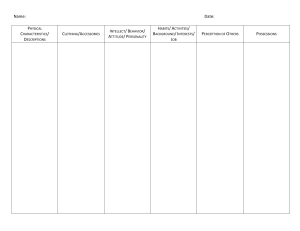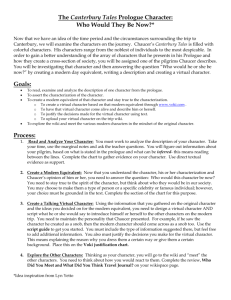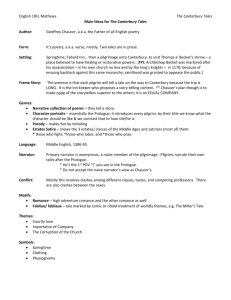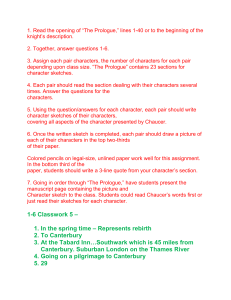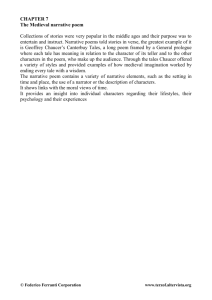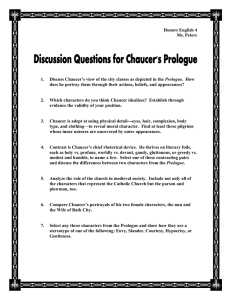Canterbury Tales Journal Prompts
advertisement
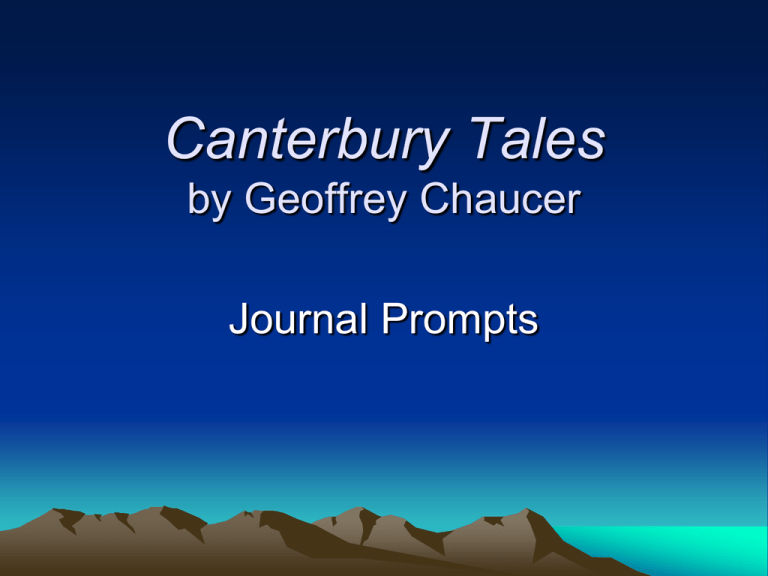
Canterbury Tales by Geoffrey Chaucer Journal Prompts • Describe a situation in which you and your family/friends tell stories. What kind of stories do you tell? • Why do you think we tell stories? What do our stories say about us? • What is your favorite family or friend story, or story about you that your family or friends tell? • Part 2: While people don’t tend to go on pilgrimages today, we do travel a lot. Perhaps the best modern-day equivalent might be the road trip. Describe a road trip or other journey you’ve taken with a group of people. Did you get to know the other people with you better? Is there something particular about travel that reveals people’s characters? Character Types • In “The Prologue,” Chaucer makes use of various character types, such as the selfless hero, the honest common man, the cheerful innkeeper, who were probably familiar to members of Medieval English society, to tell his tale. • Imagine that you are writing a similar tale about contemporary, local life. Where would your characters journey to and why? Describe four or five character types you would use and their characteristics. • We have seen in the “General Prologue” of The Canterbury Tales a cross-section of Chaucer’s medieval English world. From the Knight to the Miller and every person in between, his speaker introduces us to the different characters that comprise his society. • In the spirit of “the General Prologue,” write a description about another student in the class. • Include an introduction of the student (who he/she is, what he/she does…); physical description; and character traits. • You are allowed to poke fun and speak admiringly, but don’t write anything mean-spirited. • If you don’t have enough to say, do a selfcharacterization: how would your peers describe you? Society • Society may change with the times, yet people remain pretty much the same. • Discuss whether or not you agree with the above statement; explain and give examples. • What can you infer about Chaucer’s feelings toward the clergy? Did he trust them? Do you think he was too harsh in his criticism? What do you think he would suggest that a good clergyman do for people? Use details from the poem to support your answers. • • The adjective Chaucerian is often used to describe an earthy zest for life. In what ways is the tone of this poem “Chaucerian”? Support your ideas with examples from “The Prologue.”
